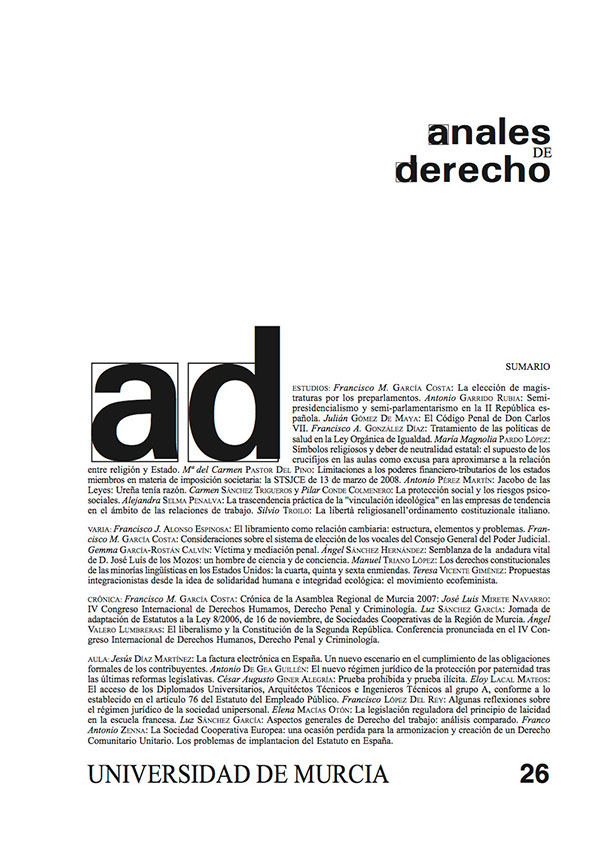Propuestas integracionistas de la idea de solidaridad humana e integridad ecológica: el movimiento ecofeminista
Abstract
In a philosophical-juridical sense, the development of human conscience appears, in the continuous development of the justice, as ecological justice ‒from social justice‒, established in the dogmatic area in a third generation of human rights known as rights of solidarity. Among these rights, we find the right to peace, the right to development, the ecological rights, or the guarantees against genetic manipulation. The overcoming and integration of the social rights in the ecological ones demonstrates the relation between the ecological and social ones, in spite of the fact that nowadays the mutual relations between humanity and the planet are threatened by the victory of the new capitalism that measures the development of the countries by the PIB that, in its more favorable items, de- pends on military power, the nuclear technology issue and limitless consumption. Anyways, and in the civilized sense that I indicated before, the advance towards an inclusive society needs an impulse of a dialogic active power in pacifist, social and ecological proposals as a minimal ethical subject-matter, which leads to the ethics of the dialog in the sense of the current meaning of the ethical speech of the argumentative procedure. From the feminist juridical point of view, the recognition of the ecological and feminine position that the ecofeminism defends comes to indicate, as last foundation of the human rights, some minimal ethical contents formulated as preservation of nature, emancipation of the woman and sustainable development, which implies an important contribution to the alternative of change of the cartesian vision of a subdivided world towards an extended, diverse and integrated perspective.Downloads
Download data is not yet available.
Metrics
Views/Downloads
-
Abstract400
-
PDF (Español (España))297
14-12-2010
Vicente Giménez, T. (2010). Propuestas integracionistas de la idea de solidaridad humana e integridad ecológica: el movimiento ecofeminista. Annals of Law, 26, 477–485. Retrieved from https://revistas.um.es/analesderecho/article/view/113361
Varia

This work is licensed under a Creative Commons Attribution-NonCommercial-NoDerivatives 4.0 International License.
The journal is object of publication in electronic and printed form. With the object of the first one, the author is supposed aware, being presumed that he lends his consent to such form of publication by the circumstance of presenting his manuscript. At the time of the printed edition the author will receive, of free form, 25 offprints of his contribution.

